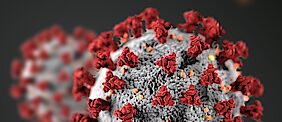Publications
European Academies of Science: European Union must base green recovery plans on science
How the European Union and its member states design recovery efforts will determine the quality of people’s lives for decades to come. Lower carbon emissions, cleaner air, respect for the ecosystem, stronger focus on health: Drawing upon their previous work, leading European scientists remind the European Union of its responsibility to take leadership and bolder action.
More rapid reduction in generation and use of high-carbon energy
Even with the disruption of almost all societal activities over the last couple of months, the emission reduction in 2020 is unlikely to reach the level of annual reductions required to meet the Paris Agreement targets. This means energy systems have to be transformed completely to get away from reliance on combustion of carbon, be it in the form of fossil fuels or even large-scale uses of biomass.
William Gillett, EASAC’s Energy Programme Director: “During the pandemic, coal-fired power generation has been significantly reduced and there has been a dramatic fall in oil consumption for transport. For a few weeks, this has given millions of citizens a chance to experience living with good air quality in cities and urban areas. Now, policymakers and investors must focus on mitigating climate warming and delivering a similarly healthy environment on a sustainable basis.”
Greater focus on agriculture, biodiversity and health
But the shift to a low-carbon energy system is not the only concern of the scientists. “COVID-19 reminds us of the vulnerability of dependence on global food systems. The European Union should strengthen sustainability of local and regional food supplies while reducing agriculture’s climate impact in the current revision of the Common Agriculture Policy,” says Robin Fears, EASAC’s Biosciences Director. “In addition, the green recovery is a chance to achieve health improvements in the near term and to reduce the growing health risks from climate change.”
According to EASAC, there is a disconnect between health policy – often decided at a Member State level – and policies on energy, agriculture and environment that are often better harmonised at EU level. However, the European institutions cannot be fully effective, unless Member States give them more science-based responsibility for health.
EASAC’s President, Christina Moberg, is adamant: “Just as science has been central to efforts to manage the coronavirus pandemic, it must also be central to inform other policies. Efficient green recovery requires international coordination and the EU should show leadership by inspiring ambitious action by other countries and in international programmes, based on independent science advice.”
Relevant EASAC reports and publications:
Decarbonisation of buildings, project in progress, to be published 2021
Packaging plastics in the circular economy, 2020
The imperative of climate action to protect human health in Europe, 2019
Decarbonisation of transport options and challenges, 2019
Forest bioenergy, carbon capture and storage, and carbon dioxide removal: an update, 2019
Extreme weather events in Europe: an update, 2018
Opportunities for soil sustainability in Europe, 2018
Negative emission technologies, 2018
Opportunities and challenges for food and nutrition security and agriculture in Europe, 2017
Valuing dedicated storage in electricity grids, 2017
Multi-functionality and sustainability in the European Union’s forests, 2017
Circular economy: priorities for critical materials, 2017
Circular economy: indicators, 2017
Marine sustainability in an age of changing oceans and seas, 2016
Ecosystem services, agriculture and neonicotinoids, 2015
Contacts:
Dr Robin Fears, EASAC Biosciences Programme Director, Email: Robin.Fears@easac.eu
Dr Michael Norton, EASAC Environment Programme Director, Email: Michael.Norton@easac.eu
Dr William Gillett, EASAC Energy Programme Director, Email: William.Gillett@easac.eu
Ms Sabine Froning, EASAC Communications Officer, Email: Sabine.Froning@easac.eu, Phone: +49 1520 8727000
About the European Academies’ Science Advisory Council (EASAC)
EASAC is formed by the national science academies of the EU Member States, Norway, Switzerland and United Kingdom, to collaborate in giving advice to European policy-makers. EASAC provides a means for the collective voice of European science to be heard. Through EASAC, the academies work together to provide independent, expert, evidence-based advice about the scientific aspects of European policies to those who make or influence policy within the European institutions.






























